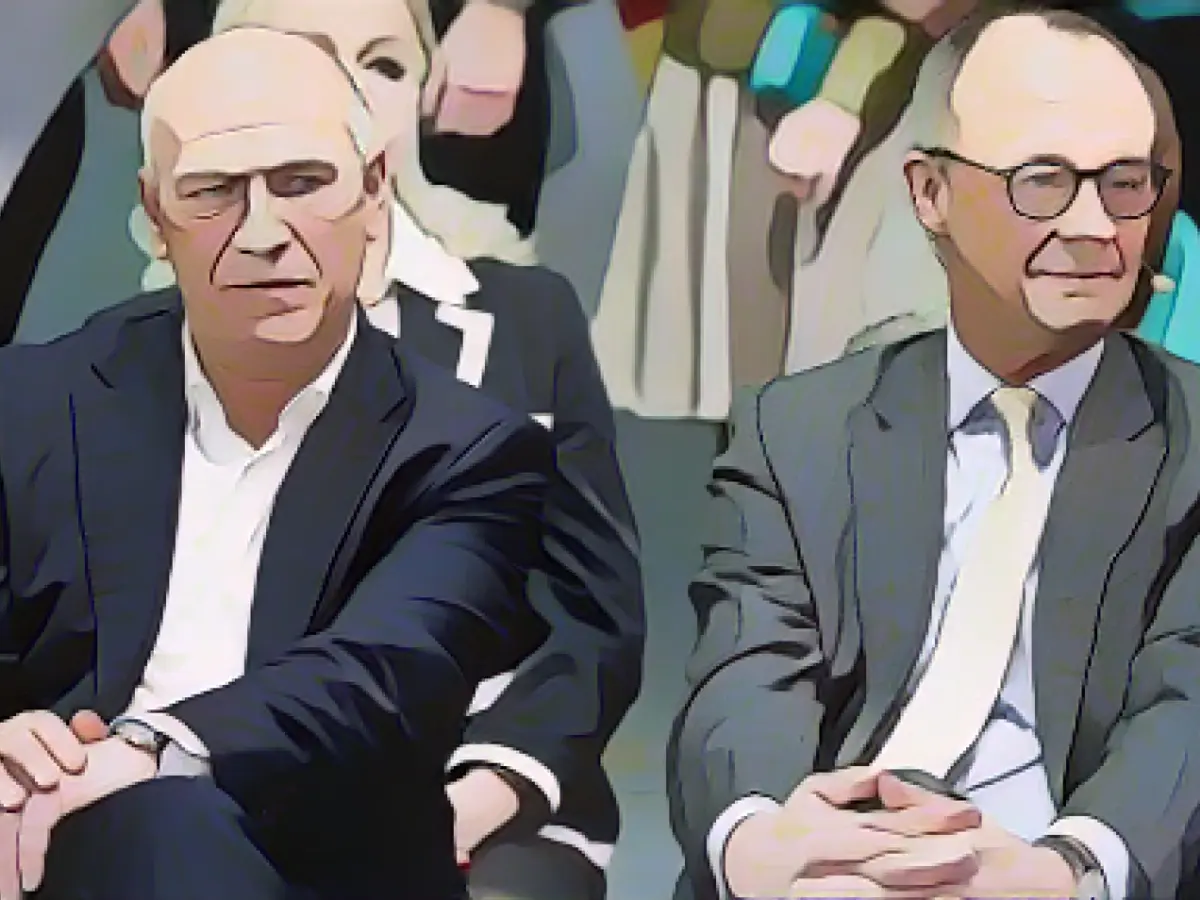A Rift in the CDU: Wegner and Merz, a Former Alliance now at Odds
The relationship between Kai Wegner and Friedrich Merz, two prominent figures in the CDU, highlights the ephemeral nature of political friendships. Not long ago, Wegner, then the CDU's Berlin chair, was a loyal supporter of Merz, who was vying for the party's federal chairmanship.
In the spring of 2020, Merz sought the top post in CDU for the second time, facing off against Armin Laschet and Norbert Röttgen. Wegner was one of the first to back Merz, taking a significant personal risk as he sensed strong support in Merz's favor.
A Change of Tide
Now, the two allies are deeply at odds and barely communicate. The turning point is often attributed to the fall of 2022, when rumors emerged that Merz and his CDU Secretary General, Mario Czaja, were promoting Jens Spahn for the Berlin mayor election, with Wegner having little chance of success. Wegner, despite the rumors, opted to renew his candidacy and eventually won with a substantial lead.
Their Dispute Lives On
The discord between Merz and Wegner continued throughout 2023. In September, Merz stirred controversy by declaring that the Berlin district of Kreuzberg was "not Germany," a remark seen as an attack on Wegner, a prominent politician in the district. This remark added fuel to the fire that had been burning between the two.
Differing Accounts of the Split
The root of the split between Merz and Wegner remains unclear. Some claim it was Mario Czaja who orchestrated the campaign to oust Wegner as the Berlin mayoral candidate due to his longstanding enmity with Wegner. However, Merz quickly distanced himself from these rumors.
Others believe that Merz was merely trying to influence the candidate selection, although Wegner remained firm in his ambitions. Merz, meanwhile, drew criticism within the party for hinting at the possibility of municipal cooperation with the AfD during a summer interview, an allegation Wegner was first to address.
Internal Unrest within the CDU
The dispute between Merz and Wegner has sparked growing unrest within the CDU. After Merz stated that decisions should be made in the German Bundestag and not Berlin City Hall, Wegner became a target of criticism for his subsequent calls for softening debt brake measures. Wegner's refusal to engage in debates or attend party meetings has contributed to the escalating tension.
Attempts at Mediation
Negotiators are now trying to mediate between the two factions, with initial success. Merz announced that he intended to meet Wegner in the near future to discuss their differences. Despite the past discord, the CDU could benefit greatly from a reconciliation to stem internal unrest.
Additional Insights
The rift between Merz and Wegner is not just a personal disagreement, but is also rooted in deeper political divisions. The two have contrasting views on migration policy and the CDU's relations with the far-right AfD party.
- Migration Policy: Merz advocated for a more stringent migration policy with measures such as permanent border controls, rejection of illegal entry, and detention for those without leave to remain. This proposal, which gained support from the AfD, sparked criticism within the CDU.
- CDU-AfD Alliance: The CDU's decision to forge an alliance with the far-right AfD in the Bundestag was another point of contention. Many within the CDU challenged the move, arguing that it would undermine democratic norms and potentially energize the far-right movement.
In conclusion, the dispute between Wegner and Merz is a result of their differing political views, primarily on migration policies and the CDU's alliance with the AfD party. This political divide has given rise to tensions within the party itself and has had an impact on the CDU's public image.





